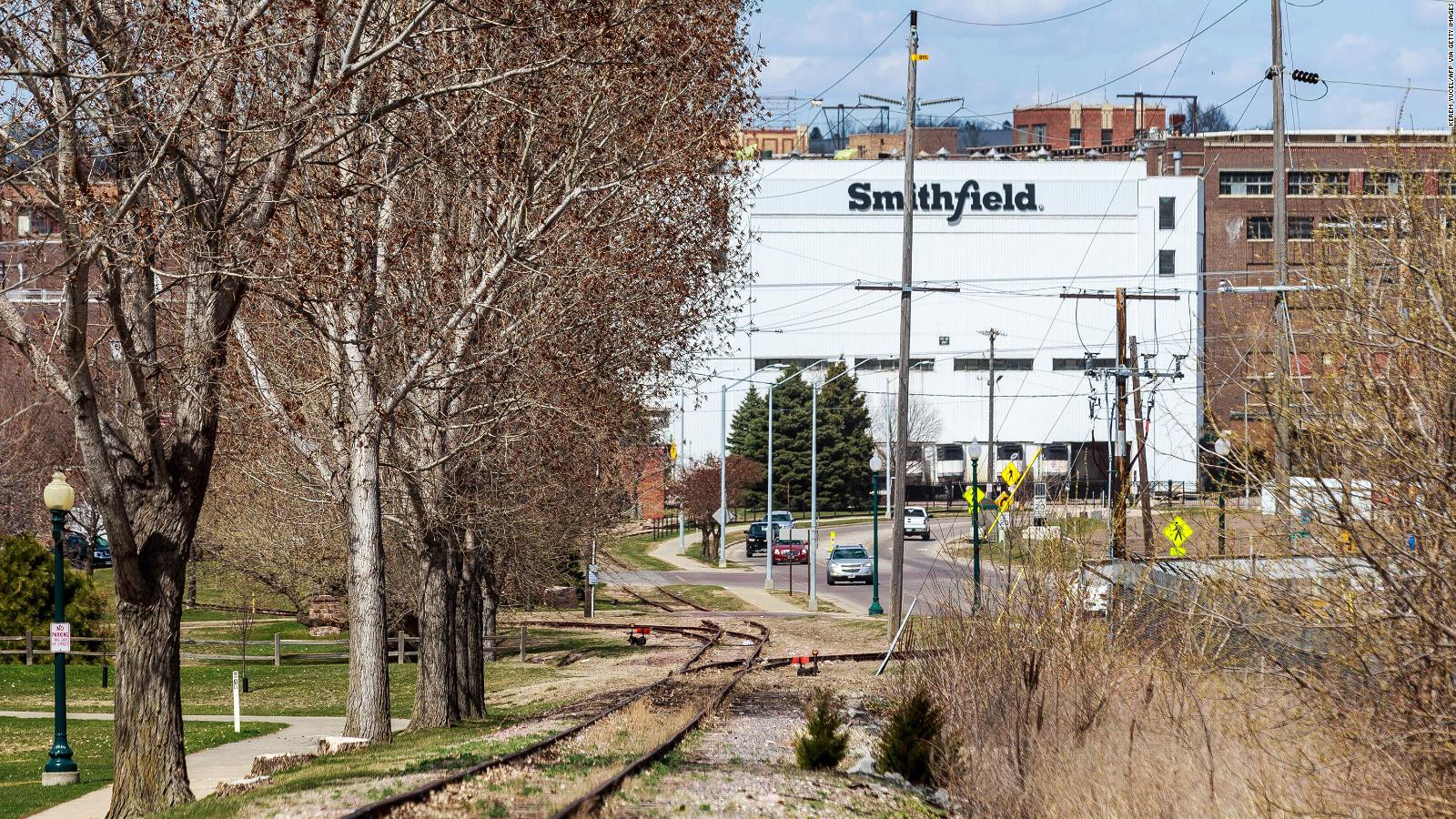But meat processing plants, especially, are in a crisis.
Over the past several weeks, a number of major meat suppliers have announced temporary closures as workers fall ill with Covid-19. The United Food and Commercial Workers International Union estimated Tuesday that 20 meatpacking and food processing workers have died so far.
The situation has gotten so severe, company executives warned, that the U.S. meat supply could be at risk. John Tyson, chairman of the Tyson (TSN) board, warned of limited supply if plant shortages continue.
"We definitely can see shortage of products in the grocery stores," said Jeff Sindelar, an associate professor at the University of Wisconsin-Madison's College of Agricultural and Life Sciences with an expertise in meat processing. If the larger processing plants continue to shut down or operate with limited capacity, certain products may be unavailable and others could get really expensive, he added.
Other food manufacturers, which process shelf-stable goods like cereal or soup, have not issued comparable warnings. And their plants seem to be largely operational, so far.
So why is meat getting hit so hard?
For years, major meat processors have been ruthlessly tamping down on costs and increasing efficiencies. That has contributed to dangerous working conditions even before the coronavirus hit.
"There are many serious safety and health hazards in the meat packing industry," the Occupational Safety and Health Administration says on its website. "These hazards include exposure to high noise levels, dangerous equipment, slippery floors, musculoskeletal disorders, and hazardous chemicals," among others.
Over the years, meat processing companies have been speeding up production lines to process more meat in each facility, explained Ben Lilliston, interim co-executive director at the Institute for Agriculture and Trade Policy. Faster lines require more workers who have to stand closer together.
Why meat plants are different
Some factory workers don't interact with the food they make directly. Instead, they may operate machinery that packages, shapes or produces food. But meat factory employees are often closely involved with the meat itself.
Many are responsible for a specific job along an assembly line, like removing bone or muscle as meat passes by on a conveyor belt.
There's "no question" that people who work in meat processing facilities are stationed more closely together than most workers at other food manufacturers, said Steve Meyer, an economist with commodity firm Kerns and Associates. He estimated that many stand about three or four feet apart from each other while working.
Officials say that people should stand about six feet apart in order to maintain social distancing practices that could help prevent the spread of Covid-19.
Meat companies say they're trying to balance protecting workers with ensuring that Americans don't face meat shortages. Major meat processors like Smithfield, Tyson and others say they've put measures in place, like temperature checks and plexiglass to encourage social distancing in some areas and to help keep their workers safe. Some workers say their employers are doing far from enough to protect them.
Dramatic changes could help alleviate the proximity problem. But it's unlikely that big companies will make them.
In a statement last week, Smithfield said "meat processing facilities, which are characterized by labor intensive assembly line style production, are not designed for social distancing."
The company said "we are doing everything we can, as fast as we can," to protect workers. But it described the working conditions as "inescapable realities about our industry."
The economics of meat processing
Meat processors could have initially set up their assembly lines with more space in between each person. But they didn't have the financial incentive. "Space is expensive," economist Steve Meyer noted.
Trying to space people out now presents a host of business problems.
With fewer people along an assembly line, the conveyor belts would have to slow down. That could mean less output — which could lead to shortages or more expensive meat for consumers.
The backlog would also be devastating for hog and livestock farmers, who are already struggling to sell their meat because of the plant closures. Consolidation in the industry has made it difficult for those producers to find smaller, local processors to handle their meat.
Outsourcing certain tasks to reduce the number of employees needed is also not a feasible solution, said Meyer. Grocery stores and big box retailers are not equipped to butcher meat themselves.
And human labor is still the least costly way to process meat, said University of Wisconsin's Sindelar.
Some U.S. meat plants have started relying more on machines and automation, he said. But it's unlikely that a larger shift towards mechanized meat processing will occur.
Even plants that have started to use robots still generally rely on people to slaughter animals and break them apart. It's "not feasible" to replace the vast number of people who slaughter and harvest animals with machines, Sindelar said.
"Here" - Google News
April 29, 2020 at 01:04AM
https://ift.tt/3bRNRXS
Meat processors warn of shortages. Here's why they're getting hit so hard - CNN
"Here" - Google News
https://ift.tt/39D7kKR
Shoes Man Tutorial
Pos News Update
Meme Update
Korean Entertainment News
Japan News Update



:no_upscale()/cdn.vox-cdn.com/uploads/chorus_asset/file/25244079/4.png)
No comments:
Post a Comment